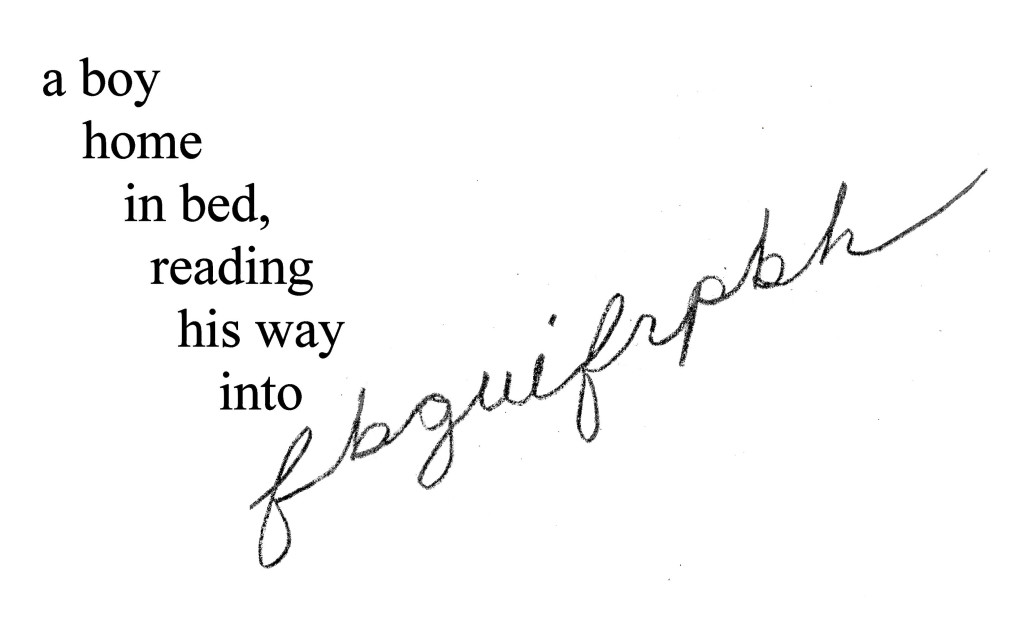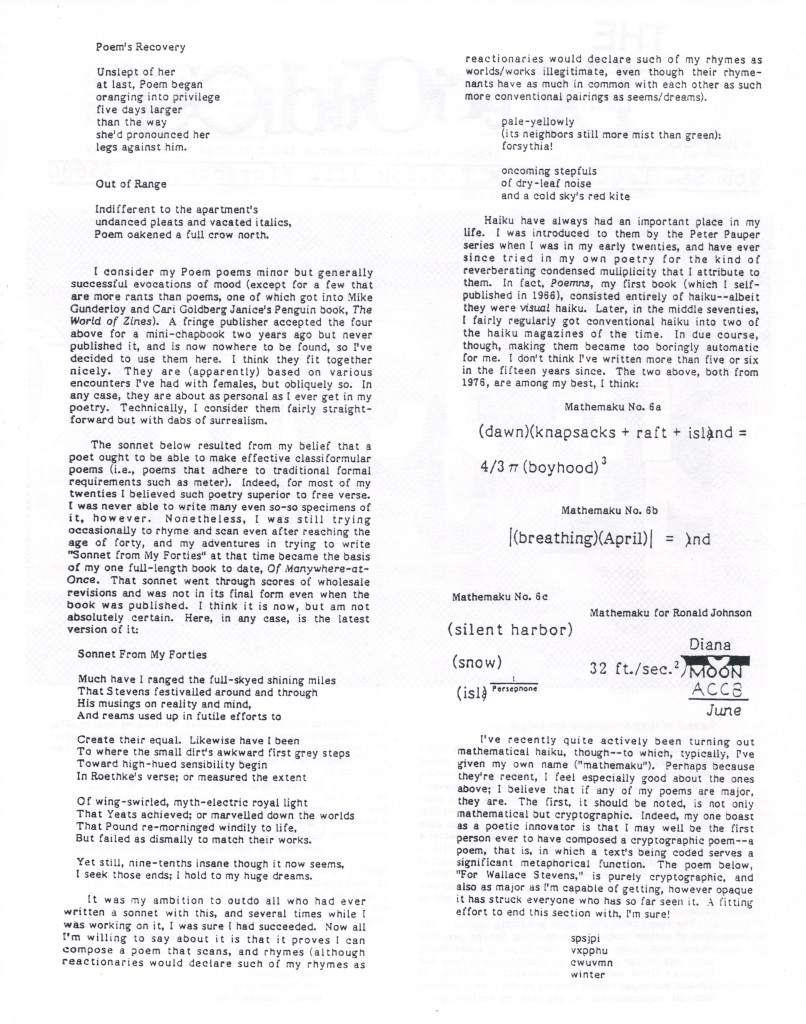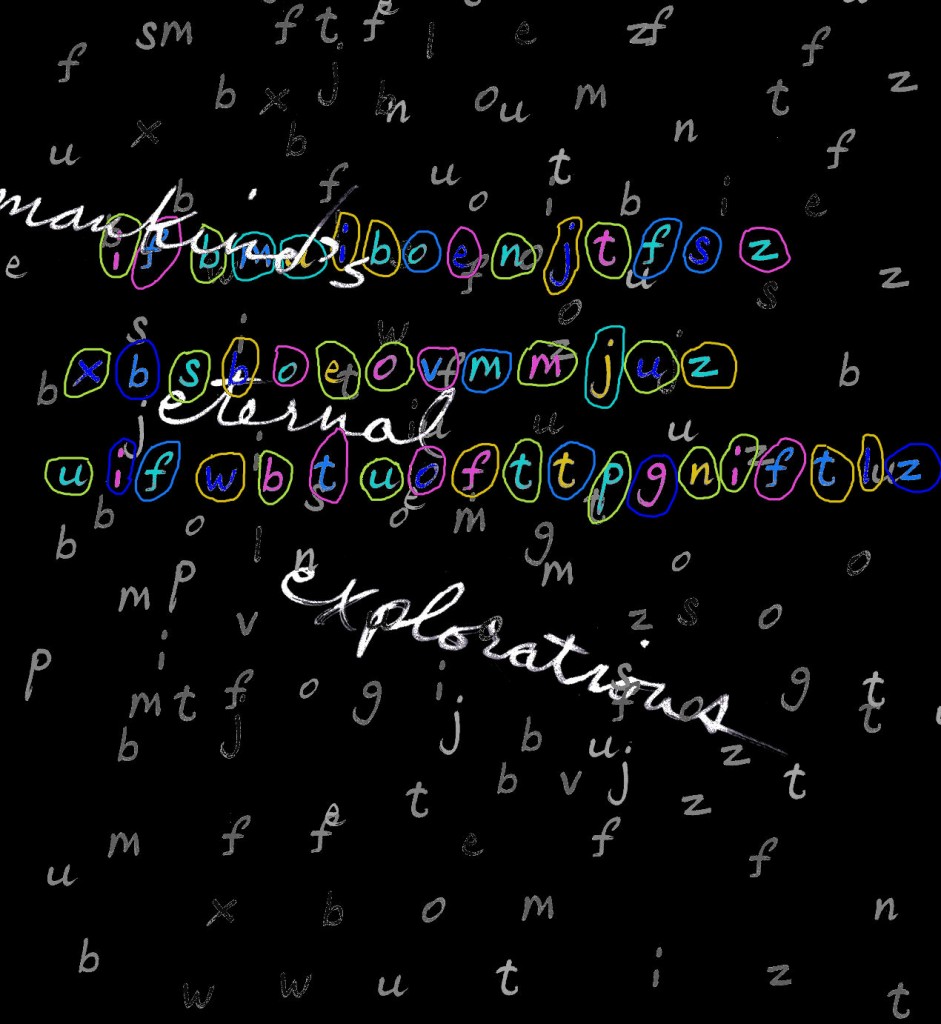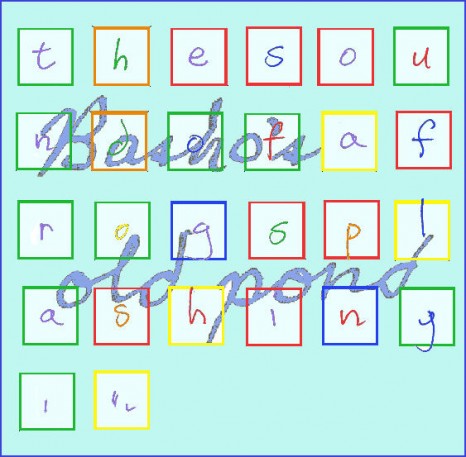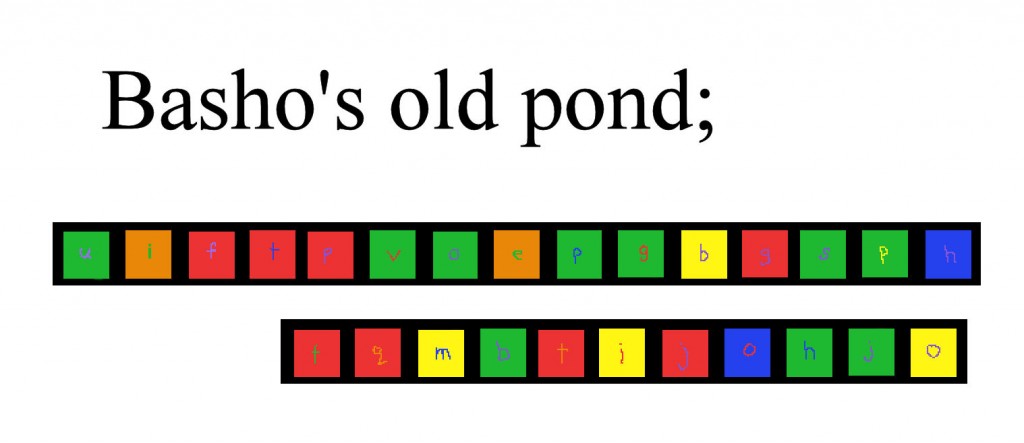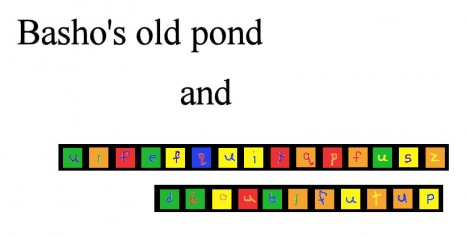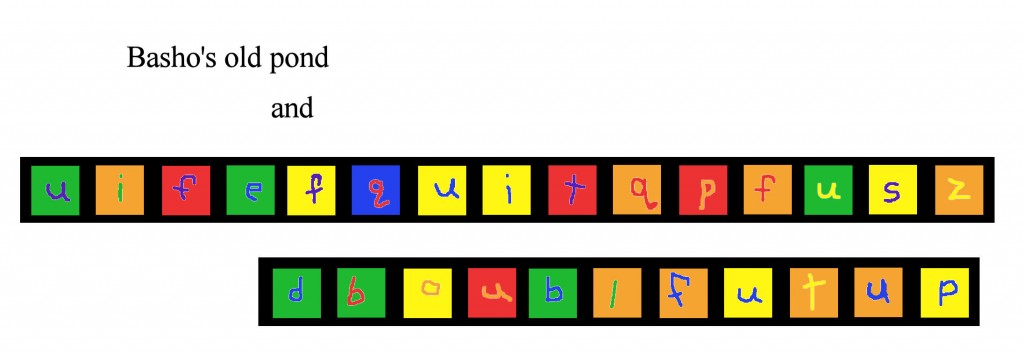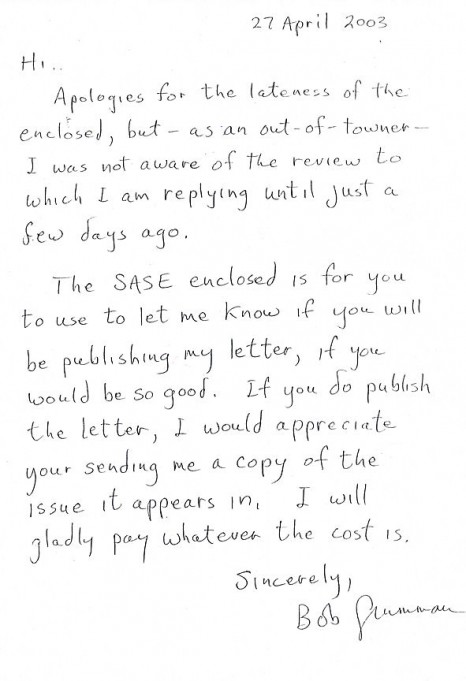Archive for the ‘Cryptographiku’ Category
Entry 1760 — Another New Poem
Sunday, March 22nd, 2015
Entry 1205 — The Experioddicist, July 1993, P.2
Friday, September 6th, 2013
Entry 1018 — My Latest Cryptographiku
Monday, February 18th, 2013
I may be leaving the field of mathematical poetry for cryptographic poetry. Two whole new cryptographic poems so far this year! I may have ideas for more, but I’m not sure. Anyway, this one is the one I used the idea of a double code on. The same clues obtain except that the grid-colors I used this time are the negatives of the ones I used for my Basho cryptographiku. I needed the black background.
It works as a partially asemic visual poem, I think. It’s also a Wordsworthian pantheistic poem. A Major Poem–you bedder buhlieve it!!! It’s title, by the way, is “Cryptographiku for Mother Nature.”
Note: See the Page to the right called “‘Cryptographiku for Mother Nature” Clues’” if you need help solving the cryptogram.
.
Entry 1016 — Final Revision?
Saturday, February 16th, 2013
Damn, I did it again: failed to set an icon to “public” to post an entry. So this is two days late.
I thought I was finished with this thing, but came up with new thoughts about its layering: that the splash should be on top of the pond. I also felt I could make a better use of the idea of the top layer’s being a coded text. I have a new cryptographiku employing it half done that I hope soon to be able to take care of a blog entry with. Anyway, below is what I hope is the final version of “Cryptographiku for Basho, No. 1″:
.
Entry 1012 — Basho Poem, Last Visit
Tuesday, February 12th, 2013
I suddenly realized yesterday that I had my secret messages reversed: the one I thought should be the lower was above the other (as I visualize the piece). So I redid the poem. I dropped “and,” while I did so to suggest that what followed might be thought of as the pond, or an illustration of it–as it is intended to be a metaphor for it.
.
Entry 1011 — Back to My Cryptographiku
Monday, February 11th, 2013
I reduced the size of the message in code. Very Minor, it would seem, but I think it improves the thing significantly! It looks better to me, but the main thing is that it suggests through its reduced size, the secret nature of the message. Historical note: when I first made a cryptographiku ten or more years ago, I thought I was really on to something. Within a year or two, I already felt I’d exhausted the form. I’d made six or seven cryptographic poems, and used coded material in a few other poems. I did think the cryptophor (coding employed metaphorically) was an effective device that might remain in the poetry tool kit, but that a poem whose central aesthetic effect depended on one had little future. I still think it may not, but my Basho poem is a new use of the form so gives me hope others will be able to find other new ways of using it.
Psychologically, I find it interesting that I suddenly, pretty much out of nowhere, had the idea for this new kind of cryptophor of mine (which, I will now reveal, involves a method of coding two messages at once–to suggest layers of hidden meanings rather than just a single under-meaning) after giving up on the device. My experience suggests how long it can take the subconscious to take an invention, my cryptophor, one step further. At least five years.
In this poem, to continue, the cryptophor suggests the entrance into another world that Basho’s frog’s dive is, and without anyone’s plunge into real, or equivalents of, ponds . . . I think its meaningfulness makes my poem at least a good one, and its metaphoric use of “doubling coding” makes it important enough to be considered major. If I’m wrong, all my poetry has been a waste of time. Oh, except for the pleasure of creativity I’ve derived from it. But I have a need to make a significant contribution to the culture of my time, not just do things I enjoy, although I’d see no point in making significant contributions to the culture of my time if I didn’t get creative pleasure from the process. If that were possible: I don’t think anyone can do anything of cultural value doing something he doesn’t enjoy. (Something verosophical or artistic.)
.
Entry 1010 — Major or Worthless?
Sunday, February 10th, 2013
Okay, everybody, I claim that this poem, “Cryptographiku for Basho,” which I finished this morning after having the preliminary idea for it several days ago, is either a Major Poem or worthless:
For obvious reasons, I tend to go for the former (and I’m not on any pills at the moment). Discussion on this should follow tomorrow.
(Note: I now have a category you can click to below that has a clue in it for solving this poem–but it will appear under this entry, too.)
.
Entry 950 — Pronouncements & Blither, Part 11
Wednesday, December 12th, 2012
Here’s a letter (slightly revised since, of course, I never can write an error-free letter) which I sent to the Editors of The Times-Picayune almost ten years ago, with an accompanying note:
1708 Hayworth Road
Port Charlotte FL 33952
27 April 2003
To the Editors of The Times-Picayune:
While I was pleased to see a poem of mine discussed in your newspaper, as it was April 13 in Sonny Williams’s review of the anthology The Other South, it would have been nicer if the poem’s title and all four of its six-letter words were spelled ryte. Here, again, is the poem, “Cryptographiku for Wallace Stevens”:
spsjpi
vxqqhu
cwuvmn
winter
Since the poem is obviously written partly in code (because of its title and the strange spellings of its words), spelling its third word as “cwuvmm,” as your paper had it, is not minor.
I would have appreciated it, too, if Williams had not also misrepresented (and misspelled part of) a passage he quotes from my contributor’s note. He claims I explain “that the poem is one of (my) ‘more sophisticated ‘cryptographers’ (i.e., texts encrypted for some metaphorical purpose) and that I’ll leave to the reader to puzzle out.” What I actually said was, “(My) other two cryptographic poems (one of them the poem quoted) contain more sophisticated ‘cryptophors’ (i.e., texts encrypted for some metaphorical purpose) that I’ll leave it to the reader to puzzle out.”
That’s sloppy reporting, but nowhere near as intellectually irresponsible as Williams’s leaving out what I said just before the misquoted remark. Regarding my first cryptographiku (i.e.,
“cryptographic haiku”) in the anthology, “Cryptographiku No.1,” whose text, in its entirety is, “at his desk, the boy,/ writing his way into “b/ wywye tfdsfu xpsme,” I said, “(this) simply depicts a boy writing a message in code. My hope is that a reader, in solving the poem’s (very simple) code, will experience the joy of working with codes; but the coded material is intended also to speak metaphorically of the boy’s writing his way into a secret world, of making/finding a world that is to the conventional one what an encrypted message is to a normal one.” In other words, I wasn’t being as high-handed with my readers as I feel Williams insinuated.
I have a number of other problems with Williams’s review but will leave them for another time. I do thank him for bringing attention to an anthology I feel extremely good about being in.
.
Needless to say, I never heard back from them. Another day in the life of the poet without credentials.
.
Entry 224 — The Key
Friday, September 17th, 2010
.
.
. 19.16.r.9.n.g.
. s.u.m.m.e.r.
. a.u.20.21.m.14.
. 23.9.14.20.5.18.
.
.
.
Entry 223 — “Short-Lived Cryptographiku”
Thursday, September 16th, 2010
.
. Short-Lived Cryptographiku
.
. #####
. 1 .#.9.#.#
. 1 .#.15.5.#
. a .2.i.18.4
. a .16.o.e.13
. a i
. a o e
. a
.
.
.
.
Sorry, no clues–except to say that its solution is straight-forward. I have no idea whether it’s worth figuring out or not, but I had to put something in this entry. (I hope a better title eventually occurs to me.)
